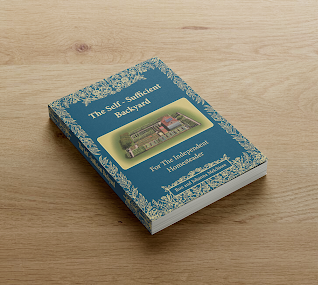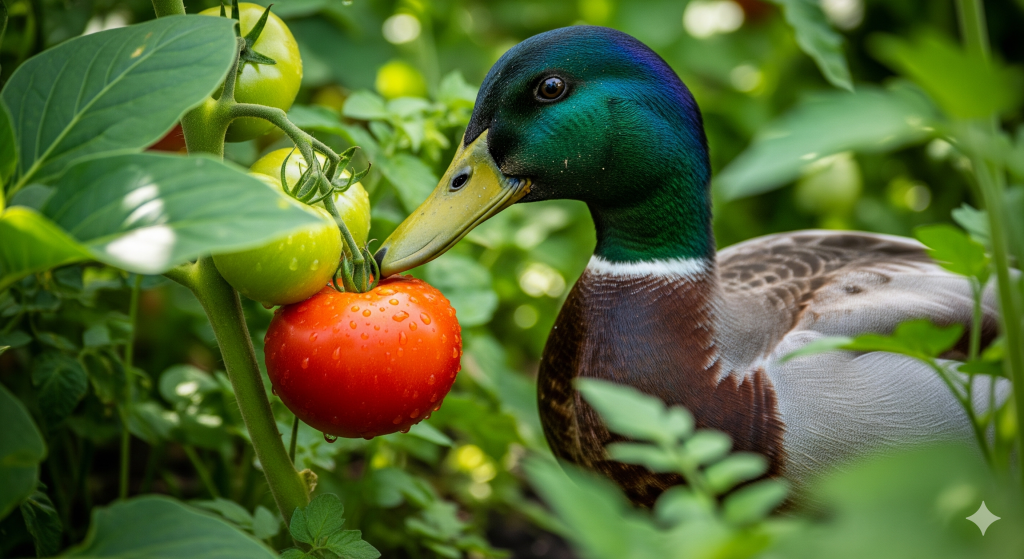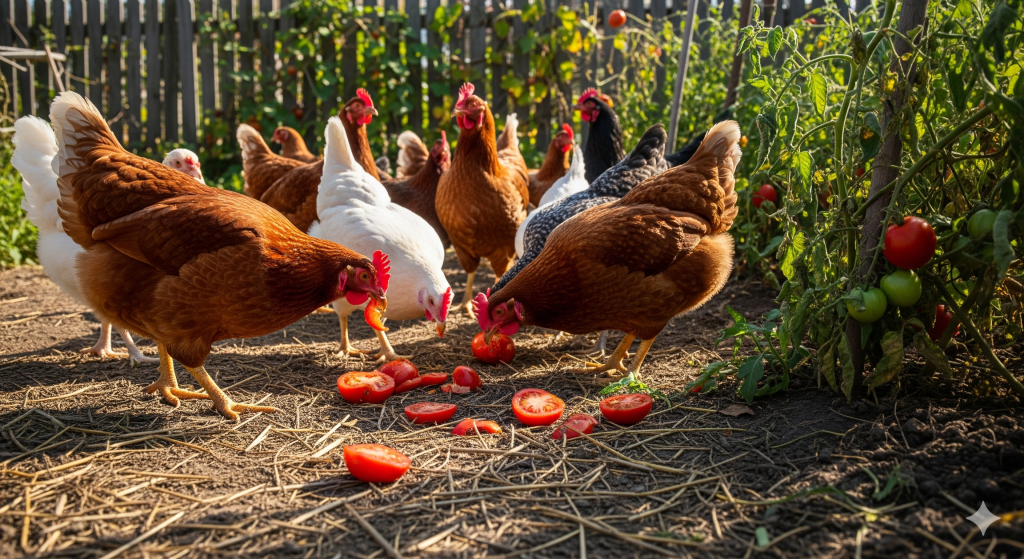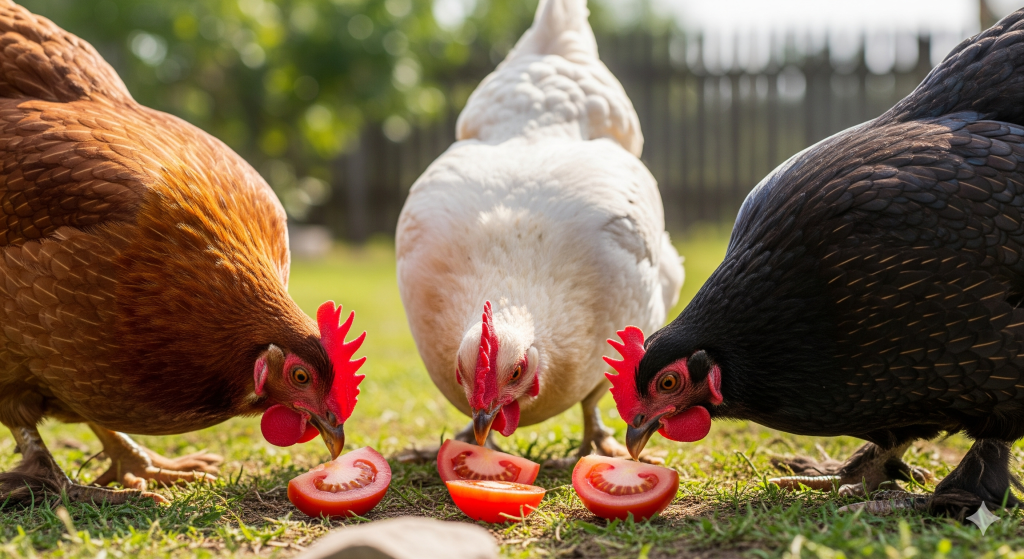Table of Contents
For those with a backyard flock of ducks, the garden can be a source of both delicious and dangerous snacks. As your tomatoes ripen on the vine, it’s only natural to wonder if your web-footed friends can partake in the harvest. While the ripe fruit is a welcome treat, the rest of the tomato plant is a different story.
So, can ducks eat tomato plants? The answer is a resounding no. While ducks can safely enjoy the ripe, red fruit, the leaves, stems, and unripe green tomatoes of the plant are toxic and should be avoided at all costs.
Want the Ultimate Guide to Off-Grid Living?

If you love the self-sufficient lifestyle, this is the only guide you’ll ever need. Learn how to generate your own power, secure your water supply, and become truly independent. No fluff, just actionable plans.
➡️ Check out The Self-Sufficient Backyard and start your journey today!
Are Tomatoes Safe for Ducks to Eat?
When it comes to feeding tomatoes to your ducks, it’s crucial to distinguish between the fruit and the plant.
- Ripe Tomato Fruit: Yes, ripe tomatoes are safe for ducks to eat in moderation. They are a good source of vitamins and can be a hydrating treat, especially in warm weather. Ducks often enjoy pecking at the juicy flesh.
- Tomato Plant (Leaves, Stems, and Unripe Fruit): No, these parts of the plant are toxic to ducks. Tomato plants are part of the nightshade family and contain a compound called solanine, which can cause illness in ducks if ingested.
Can Ducks Eat Tomato Seeds and Leaves?
- Seeds: The small, soft seeds inside a ripe tomato are perfectly safe for ducks to eat along with the flesh.
- Leaves: No, ducks cannot eat tomato leaves. The leaves contain the highest concentration of solanine and are toxic to ducks.
What Plants Are Poisonous to Ducks?
It’s important to be aware of other common garden and yard plants that are poisonous to ducks. Here are some of the most common culprits:
- Nightshade Family: This includes the leaves and stems of tomatoes, potatoes, and eggplant.
- Rhubarb: The leaves are highly toxic.
- Onions: Can be toxic in large quantities.
- Avocado: The pit and skin are toxic.
- Ornamentals: Many common shrubs and flowers are poisonous, including azaleas, rhododendrons, wisteria, yew, and oleander.
What Vegetables Can Ducks Eat?
Ducks are omnivores and enjoy a wide variety of vegetables. Here are some safe and healthy options to feed your flock:
- Leafy Greens: Lettuce, kale, collard greens, and cabbage are all great choices.
- Root Vegetables: Cooked or grated sweet potatoes, beets, turnips, carrots, and parsnips are nutritious treats.
- Other Vegetables: Ducks also enjoy squash, cucumbers, peas, and corn.
Conclusion
While you shouldn’t let your ducks loose in your tomato patch, you can certainly share the ripe fruits of your labor with them. Ripe tomatoes, offered in moderation, are a safe and enjoyable treat for your flock. However, always remember to keep them away from the toxic leaves, stems, and unripe fruit of the tomato plant. By being mindful of which plants are safe and which are poisonous, you can keep your ducks healthy and happy for years to come.



